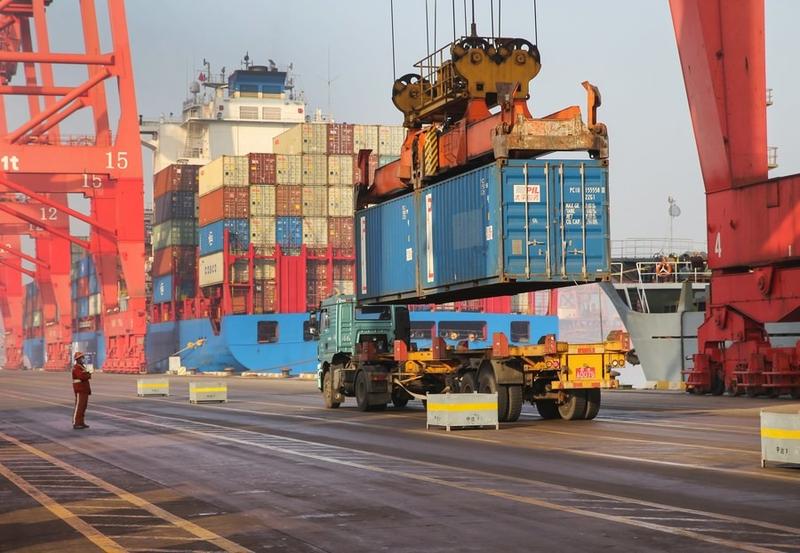 Cargos are unloaded from a container ship at the container terminal of the Lianyungang Port in East China's Jiangsu province, on Jan 14, 2021. (PHOTO / XINHUA)
Cargos are unloaded from a container ship at the container terminal of the Lianyungang Port in East China's Jiangsu province, on Jan 14, 2021. (PHOTO / XINHUA)
When China launched its acclaimed reform and opening-up policy in the late 1970s, part of the strategy was to encourage its enterprises to explore trade and investment opportunities abroad, and Africa was one of the places Chinese firms set their sights on.
Africa was characterized by weak industrial chains, poor infrastructure connectivity and high levels of poverty. The continent also presented less competition for Chinese companies, given that the few Western enterprises with footprints in Africa were more interested in resource extraction than sustainable economic partnerships.
Four decades down the line, private and State-owned Chinese enterprises have become the linchpin for rapidly evolving and deepening cooperation with Africa.
In 2000, the Forum on China-Africa Cooperation was established, and nine years later, Beijing overtook the United States to become Africa’s largest trading partner.
In the two decades following the founding of FOCAC, trade between China and Africa grew twentyfold to hit US$200 billion.
A new report by the China-Africa Business Council indicates that foreign direct investment in Africa by Chinese companies was valued at US$56 billion at the end of 2020, with private enterprises accounting for 70 percent of that.
Driven by market expansion, return on investments, industrial transfers and a search for resources, Chinese companies have made huge contributions to infrastructure modernization through the Belt and Road Initiative, jobs creation and industrialization.
The report builds on earlier surveys and studies that pointed to the role of Chinese companies in Africa’s socioeconomic transformation.
According to the Brookings Institution, for example, between 2014 and 2018, China’s total FDI in Africa was US$72.2 billion, compared with US$30.9 billion from the US and US$34.2 billion from France. During the same period, Beijing helped create 137,028 jobs in Africa, compared with Washington’s 62,004.
Acknowledging China’s strong role in Africa’s trade, investment, infrastructure financing and aid portfolios, a 2017 report by McKinsey, which surveyed over a thousand Chinese firms, said China’s FDI in Africa increased 25 percent between 2010 and 2014. The survey also found that 89 percent of employees in Chinese companies on the continent were African.
The China-Africa Business Council report comes amid unprecedented economic challenges for the continent as a result of COVID-19. Government revenues in Africa have dropped 25 percent, while more than 100 million jobs have been lost to the pandemic. There is therefore greater need for progressive economic partnerships with Africa’s development partners.
Chinese firms are increasingly focusing on cooperation in fields including high-tech manufacturing, pharmaceuticals and the digital economy, focus areas that also hold great promise for rebooting Africa’s economic vitality.
Young Africans are looking for the connectivity that can fuel creation of virtual jobs, while pharmaceutical investments are expected to foster Africa’s self-reliance in dealing with pandemics.
Projects like Kenya’s Konza Technopolis smart city, vaccine manufacturing in Egypt and Morocco, and joint efforts to cultivate digital security and governance capacity with different African countries are early outcomes of the new development approach.
Certainly, the success of Chinese companies in Africa has not come without intractable challenges. Planning and coordination shortcomings as well as inadequate international business experience and risk management capacity have dimmed the ability of the enterprises to operate optimally.
Even as the African Continental Free Trade Area takes shape, Africa is a compelling economic partner. Improving intercultural communication while leveraging sustainable investment and financing models can help localize and give firm roots to Chinese companies on the continent.
The writer is a scholar of international relations with a focus on China-Africa cooperation.
The views do not necessarily reflect those of China Daily.


